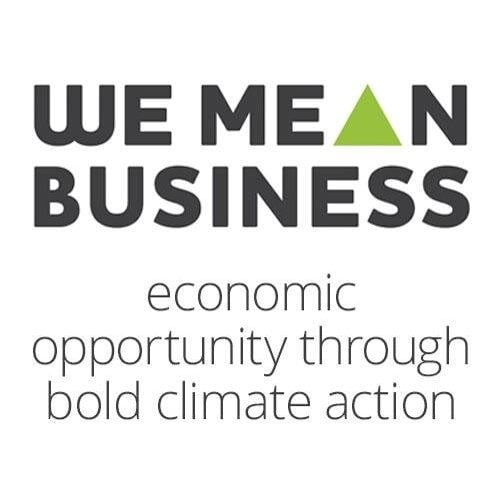

Economy
We Mean Business release detailed wording of policy asks for ambitious, new climate agreement at COP21
In a briefing sent today to key negotiators at the forthcoming UN Climate Summit in Paris, We Mean Business (WMB) sets out eight key text proposals that the business community is calling to be included in a new, ambitious global climate agreement. WMB hope to work with governments to turn the Paris agreement from a diplomatic settlement between countries into a catalytic instrument for the real economy.
The text proposals, the first ever of their kind, form part of a comprehensive business briefing of the new climate agreement compiled by WMB. They were launched today at a We Mean Business/Institutional Investors Group on Climate Change (IIGCC) briefing hosted by the Grantham Institute on Climate Change and the Environment at the London School of Economics where institutional investors and business experts on climate change set out what they expect from Paris.
Launching the proposed policy asks on behalf of We Mean Business, Mark Kenber, chief executive of The Climate Group said: “While climate change is one of the greatest risks we face, tackling it is also one of our biggest economic opportunities. Businesses are already coming together to find innovative ways not only to reduce carbon emissions but also to create new jobs and secure sustainable economic growth at the same time.
“But to go further, business needs the right government policies in place. We Mean Business has today revealed how we can hard-wire those sorely needed policies into the new climate change agreement. We stand ready to work with the UN and both national and local governments to deliver on our promise to future generations that we will keep climate change in check. We look forward to the negotiators responding positively to our proposals.”
Ahead of the COP21 UN climate negotiations in Paris this year, both the UNFCCC and the French Government have welcomed business and investor involvement in the process, as many of the game-changing low carbon technologies will have to be led by them. The companies and organisations united by WMB have taken up this invitation and come to the table not only with their own actions to reduce emissions but with clear policy asks and proposals that will enable the world to do so.
The detailed preferred text to each proposal is included as an appendix to this release along with the We Mean Business letter to negotiators. The full business brief carried out by WMB which includes fall-back positions for each of the preferred text proposals can be viewed here.
The specific policy asks proposed today by WMB would give effect to the following areas where business has asked policymakers to help the private sector go further, faster:
– Increasing the level of urgency and ambition in government action to stabilise global emissions before the end of this decade
– Continuing to implement domestic policies through to 2030 that support bold business action to cut emissions, including:
– Eliminating subsidies that incentivise high-carbon energy
– Enacting meaningful pricing of carbon
– Ending deforestation
– Putting in place robust energy efficiency standards
– Supporting for scale-up of renewable energy
– Ensuring that all policy regimes dealing with fiscal, energy, industry and trade related issues provide actionable incentives for an early transition to a low carbon future
– Establishing a clear long-term global goal that provides the necessary direction to decision makers, such as (net) zero emissions well before the end of the century;
– Enhance existing mechanisms by which we improve transparency and accountability in monitoring climate ambition and action, and ensure a stable and predictable low carbon investment environment;
– Continuing to scale up public finance to support resilience-building and accelerate low carbon investment by the private sector
The transition to a low carbon economy is the only way to secure sustainable economic growth and prosperity for all. To reduce this risk, companies need to find new ways of doing business. The sooner this is accomplished, the less disruptive and more cost-effective the transition will be.
Steve Howard, Chief Sustainability Officer at IKEA said: “Companies have the potential to unleash a wave of innovation and investment in low carbon technologies, creating new products and services, and generating growth and jobs. To achieve this, the world needs to have the right policies in place. Policies that help scale clean energy, drive energy efficiency and conserve natural resources and send the right price signals to make every investment a low carbon investment. This is precisely what the We Mean Business proposals aim to do.”


 Features9 months ago
Features9 months agoWhat is the Eco-Friendliest Option to Wash Your Dishes?

 Environment12 months ago
Environment12 months agoBuilding a Career in Green Construction: Tips and Insights

 News10 months ago
News10 months ago5 Ways Fleet Maintenance Software Can Help Businesses Be More Eco-Friendly

 Features10 months ago
Features10 months agoAddressing Pressing Ethical Concerns with Crypto Exchanges





























